Poet Conor Bracken’s chapbook focuses on Henry Kissinger as a model for “everything wrong with masculinity.”
September 29, 2017, by Erika Jo Brown
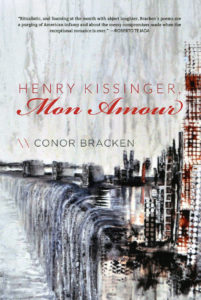 On Friday, September 22, the Houston literary community gathered at Brazos Bookstore to celebrate the release of Conor Bracken’s award-winning chapbook Henry Kissinger, Mon Amour. The manuscript was the recipient of the 2017 Frost Place Competition sponsored by Bull City Press. Bracken, a former Inprint Fellow and current Inprint Poetry Busker, is an active local writer and teacher, and the event was warm and collegial.
On Friday, September 22, the Houston literary community gathered at Brazos Bookstore to celebrate the release of Conor Bracken’s award-winning chapbook Henry Kissinger, Mon Amour. The manuscript was the recipient of the 2017 Frost Place Competition sponsored by Bull City Press. Bracken, a former Inprint Fellow and current Inprint Poetry Busker, is an active local writer and teacher, and the event was warm and collegial.
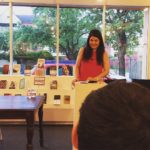 Fellow University of Houston Creative Writing Program alum Analicia Sotelo helped introduce and open for Bracken. She described Bracken’s work as interrogating “the white male situation.” Their writing shares, Sotelo says, an interest in “the subtle exploration of power play.” She proceeded to read from her own accomplished chapbook Nonstop Godhead, which includes such titles as “Apologia over Marinated Lamb” and dwells on major Hispanic modern painters such as Salvador Dali and Frida Kahlo.
Fellow University of Houston Creative Writing Program alum Analicia Sotelo helped introduce and open for Bracken. She described Bracken’s work as interrogating “the white male situation.” Their writing shares, Sotelo says, an interest in “the subtle exploration of power play.” She proceeded to read from her own accomplished chapbook Nonstop Godhead, which includes such titles as “Apologia over Marinated Lamb” and dwells on major Hispanic modern painters such as Salvador Dali and Frida Kahlo.
Continue reading


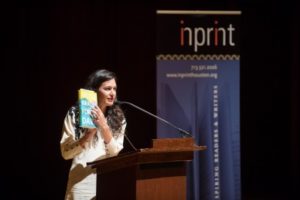 Last Monday’s sudden storms brought uncomfortable reminders of the recent devastation in and around Houston, echoed now in Puerto Rico, and Florida, and other parts of the Caribbean and the Gulf. Those of us who made it to this season’s first installment of the Inprint Margarett Root Brown Reading Series were soggy and a little anxious to come in from the rain. We crowded the orchestra section of Rice University’s Stude Concert Hall, borrowed in the wake of Harvey’s damage to the Wortham Center’s performance spaces.
Last Monday’s sudden storms brought uncomfortable reminders of the recent devastation in and around Houston, echoed now in Puerto Rico, and Florida, and other parts of the Caribbean and the Gulf. Those of us who made it to this season’s first installment of the Inprint Margarett Root Brown Reading Series were soggy and a little anxious to come in from the rain. We crowded the orchestra section of Rice University’s Stude Concert Hall, borrowed in the wake of Harvey’s damage to the Wortham Center’s performance spaces.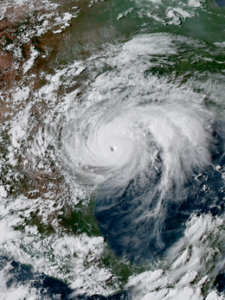 This is the final entry in a series of micro essays on Hurricane Harvey by participants in Inprint’s nonfiction workshop led by poet
This is the final entry in a series of micro essays on Hurricane Harvey by participants in Inprint’s nonfiction workshop led by poet 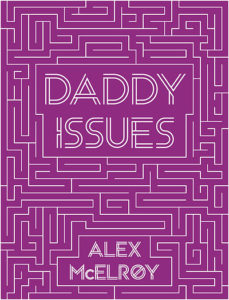 Alex McElroy
Alex McElroy